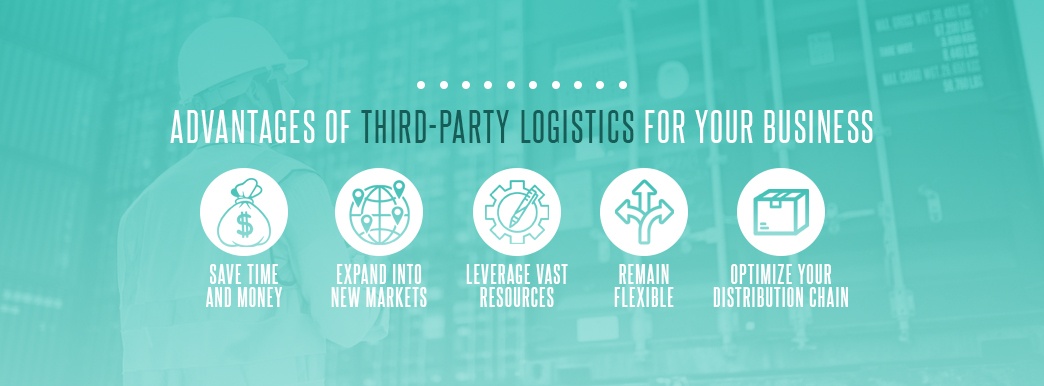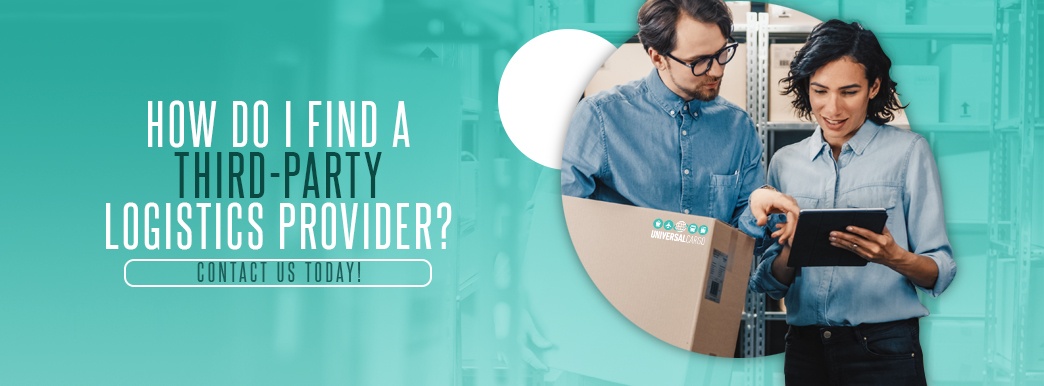Everything You Need to Know About Third-Party Logistics
Growing businesses are continuously looking for ways to lower costs and streamline operations while reaching a wider market base. With the rapid expansion of global commerce, savvy businesses know they need reliable partners to remain competitive. One of the most valuable partnerships any growing business can form is the one they have with their distributor.
The landscape of distribution has changed dramatically in the past 10 years. With the increasing use of third-party logistics, businesses now have access to full-service supply chain partners who help with the distribution of goods as well as warehousing, fulfillment and inventory management.
What Is a Third-Party Logistics Company?
Third-party logistics (3PL) companies provide a middle layer of service between the manufacturer and the end-user. In a traditional or one-party business, the manufacturer provides goods directly to the consumer. In a second-party logistics framework, the business hires a transportation company to fulfill shipment to the customer. In a third-party logistics model, the company hires the provider for transportation and warehousing, as well as several other services as needed.
Expanding businesses may find themselves suddenly needing extra warehouse space to store their inventory while it waits to be shipped to the customer. However, warehouse space is expensive, especially when you’re a growing business that can’t risk accumulating high inventory carrying costs. Essentially, a third-party logistics provider eliminates much of the risk businesses incur when they own and operate their own warehouses.
While 3PLs provide physical warehouses for businesses to ship their products to and store until they’re ready to be delivered to the end customer, this is just one of many third-party logistics examples. Many 3PLs own, operate and manage storage facilities, and some also assist businesses with freight and distribution, as well as many other important steps in between. Some third-party logistics companies even specialize in particular industries or niches, such as cold storage for frozen food, or regional commerce, such as the Asia-Pacific trade.
 Advantages of Third-Party Logistics for Your Business
Advantages of Third-Party Logistics for Your Business
The more the third-party logistics market continues to hone and refine its service offerings, the more advantages they offer to businesses. If you’re a new or expanding business looking to streamline your distribution and improve your bottom line, consider these important advantages of third-party logistics providers:
- Save time and money: Third-party logistics companies are designed to take the burden of warehousing and distribution operations off of product manufacturers or importer-exporters. With third-party logistics, you’re essentially splitting supply chain costs with the 3PL company’s other customers. Shared warehousing and distribution saves money and time. Establishing your own warehouse and distribution chain is a time-consuming undertaking. With a 3PL, the process is already in place, and you can scale it to your needs at any time.
- Expand into new markets: Expanding businesses can receive the largest benefits from third-party logistics. Some businesses grow to a certain point where they must start to invest in new market opportunities to grow their profitability to the next level. Third-party logistics providers can provide businesses with direct distribution channels into new desired regions. They already have the ability to facilitate global commerce and can meet the regulations and requirements of international trade.
- Leverage vast resources: It’s a significant investment for businesses to build their own resource networks — whether that’s transportation assets, warehouse supplies or distribution partners. Effective 3PLs have well-established resource networks that their customers can easily and conveniently leverage.
- Remain flexible: All businesses experience peak periods and slow times. An expensive warehouse operation can make it difficult to respond nimbly when your client or customer needs change. Partnering with a 3PL gives you the advantage of scaling up or down as needed. You can rely on your third-party logistics provider to be flexible and meet your changing needs.
- Optimize your distribution chain: By working with a third-party logistics provider, you can focus on what you do really well — manufacturing goods and delivering high-quality customer service. Similarly, 3PLs stay laser-focused on continuous optimization of their processes and distribution chains. By making constant tweaks to improve offerings, it alleviates the burden on businesses that can instead safely rely on their 3PLs to deliver efficient, streamlined services.
Any business needing warehousing, distribution and shipping on a national or global scale can benefit from partnering with an experienced 3PL. But it’s important to know that not all third-party logistics providers are created equal. Hiring a provider is a highly personal choice that must align with your business needs.
What to Consider When Selecting a Third-Party Logistics Provider
Choosing a third-party logistics provider is like going into any other long-term partnership. You need to know you’ll work well together and that you have the same goals. You want to know that you can trust them with your inventory and that they’ll deliver dependable and consistent service. If you’re in the market for a third-party logistics provider, consider these important factors when choosing your 3PL:
- Location: Location is essential when establishing a distribution partnership. Businesses need to access the 3PL warehouse easily, and the logistics company must also be able to distribute within the markets you’re targeting. Whether that’s locally, nationally or internationally, your 3PL should already have an established distribution channel or have the ability to seamlessly establish one.
- Services: As the third-party logistics market grows, so too do most providers offerings. When looking for a 3PL to partner with, consider the full range of services they offer. Typical services include inventory management, warehousing, fulfillment, freight and even returns. Even if you don’t require global shipping now, it’s good to know that your 3PL can provide it if and when your business does reach this point of expansion.
- Value: It’s critical that businesses receive good value from their 3PL for it to make long-term financial sense. When searching for the right third-party logistics provider for you, find out about the different services and the cost of each one. This includes all costs associated with storing, picking, packing and shipping.
- Experience: Especially when dealing with global markets, it’s highly important for businesses to partner with experienced international 3PLs. Global shipping can be a tough field to navigate, but an experienced third-party logistics provider will be more than capable of distributing your products to your desired global markets. They’ll provide cost-effective solutions to your most difficult warehousing and shipping challenges.
 How Do I Find a Third-Party Logistics Provider?
How Do I Find a Third-Party Logistics Provider?
A partnership between a business and its 3PL should support long-term success and help businesses grow and expand. The right third-party logistics provider for your business can deliver personalized service that responds to your changing needs. Universal Cargo is proud of the many partnerships we’ve established in our more than 30 years of business. We’ve got the experience, resources and innovation necessary to help businesses like yours succeed in the global marketplace.
Contact Universal Cargo to learn how we can help with shipping, freight forwarding, product sourcing, trucking and much more. Call us today at 1-866-826-2276 or contact us online.



